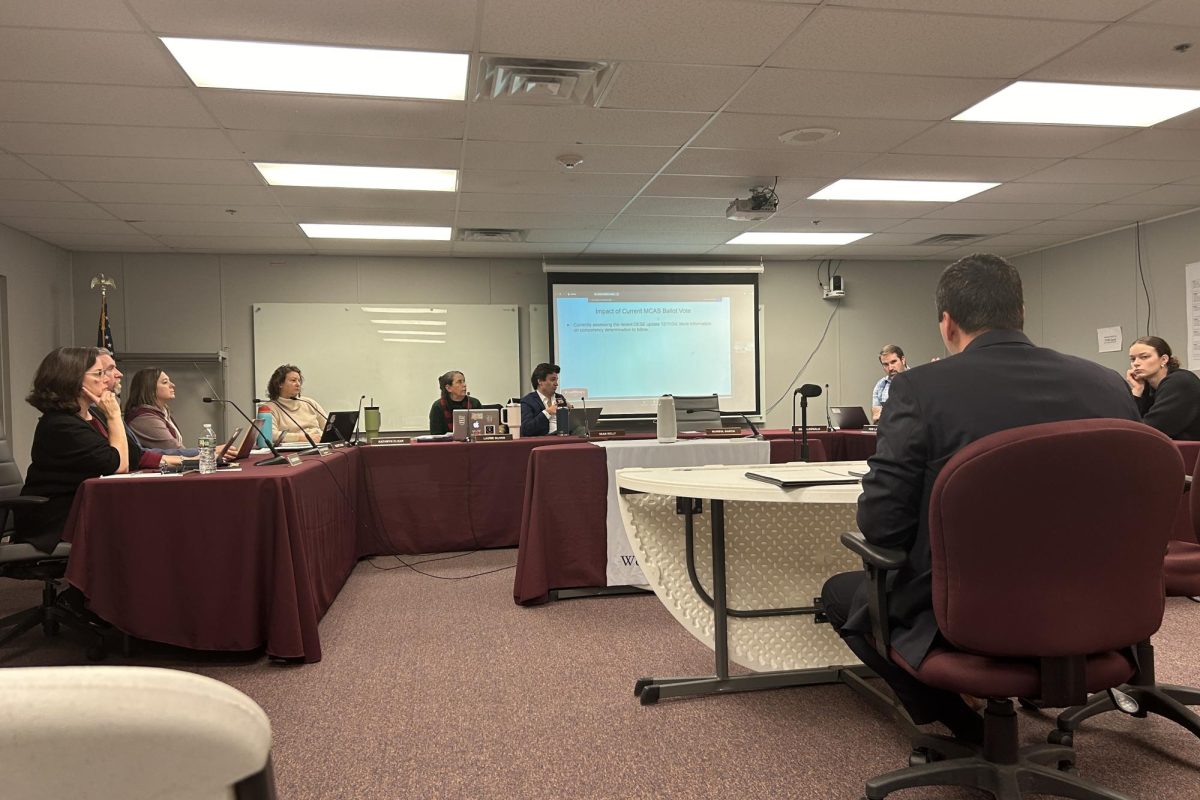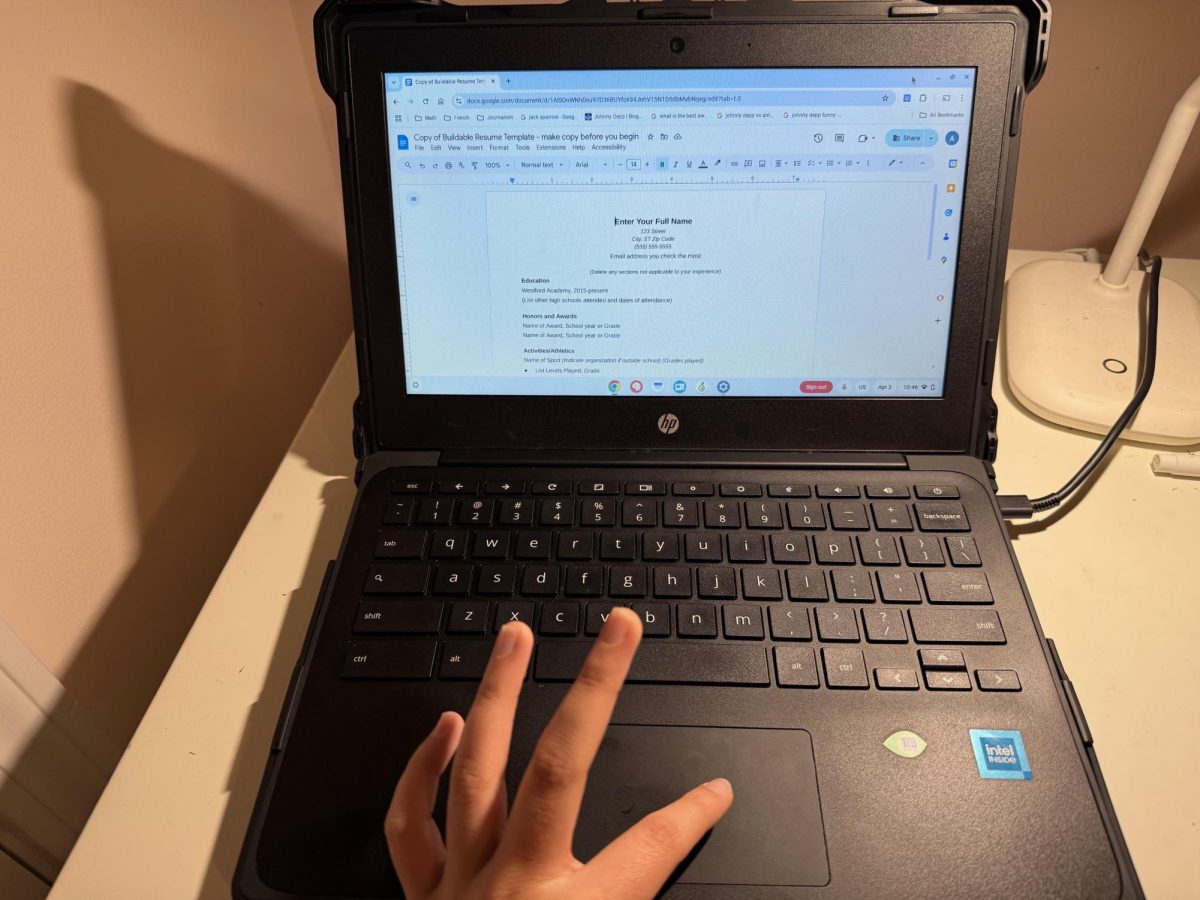The Graduation Requirement Review Committee shared their recommendations at the Dec. 16 school committee meeting, proposing changes centered around restructuring Physical Education (PE) & Health guidelines, along with reducing senior year credit requirements from 32.5 to 30.0. Presented by WA principal Dan Twomey, the goal is to ultimately allow for more flexibility and choice in student schedules.
If approved, these changes to graduation requirements would apply to the Class of 2030, or current seventh graders.
These reccomendations come after the committee’s extensive review of Massachusetts’ standards, comparison of Westford to nearby districts, and a survey sent out to students. According to this survey, nearly 40% of respondents believe there should be a decrease in PE requirements.

PE Requirement
According to Twomey, in decreasing the PE and Health credit requirement from 12.5 credits to 10 credits, students would be allowed an extra semester elective during their freshman year.
“It doesn’t sound like much, but 2.5 more credits available equals more choice,” Twomey said. “That gives them more opportunity to take electives, especially that freshman year, being able to start an [elective] track that might not have been available previously.”
According to Twomey, even with the reduction of this requirement, students will still be obligated to take a semester of PE every year, as required by Massachusetts law. However, the extra 2.5 credit will come from a restructuring that may involve merging Grade 9 Health and Grade 9 PE, creating a wellness program that encompasses both, as outlined in 2023 released frameworks. With this new space in freshman schedules, the option to defer one semester of PE class to sophomore year would also be removed.
Although the Department of Elementary and Secondary Education’s (DESE) guidelines do allow for an open interpretation of what constitutes physical education, the committee will not pursue any highly-anticipated PE alternatives such as participation in varsity sports, citing equity and curriculum concerns.
“We’ve talked about a lot of reasons, and one of them is that it is not an equitable option. There are students who would not be able to do these things [outside of class] to meet the requirement,” Twomey said. “[…] What we also realized is that [PE and athletics] are two different things. Yes, they have some similarities, but they are certainly different.”
Senior Credit Reduction & Other Considerations
The second recommended change by the Graduation Requirement Committee would apply only to seniors, reducing their required credits from 32.5 to 30.0. Addressing the time and workload consumed by college applications, this would allow for seniors to more easily schedule a year-long study hall, otherwise known as Designated Learning Time (DLT), while still fulfilling credit requirements.
“Senior year is definitely super stressful and most generally don’t need to take up all 32.5 credits because they’ve taken most of the classes they want or need to,” senior Isha Labhsetwar said. “I think this would be a great change because future seniors will be able to take the DLT and use that time to focus on other classes they’re taking and college applications.”
With the recent Massachusetts ballot vote eliminating MCAS as a requirement for graduation, the school district is working to refine graduation guidelines, with the option of instating a local MCAS requirement. According to superintendent Christopher Chew, the district is waiting on additional guidance from DESE to continue with this process over the next few weeks.
Other considerations brought forth by the committee included potentially increasing Visual and Performing Arts (VPA) requirements in line with District Analysis and Review Tools (DART). However, WA’s one semester VPA requirement currently fulfills the minimum MassCore recommendation, which is why the committee decided to maintain the present 2.5 requirement and allow students more options in choosing their electives.
The committee also discussed adding a computer science or personal financial literacy course requirement, a forthcoming trend nationwide, but did not include this as part of the official recommendation at this time.
The school committee will vote upon the proposed changes in the upcoming months, acknowledging that it is an ongoing discussion.
“It’s just the beginning of these conversations. There is no action tonight on [graduation requirements],” school committee chair Valery Young said. “We understand that these are things we want to allow a lot of public comments for and we are accessible by email. And there will be changes for the community so […] we want to take our time and discuss them and revisit them.”








